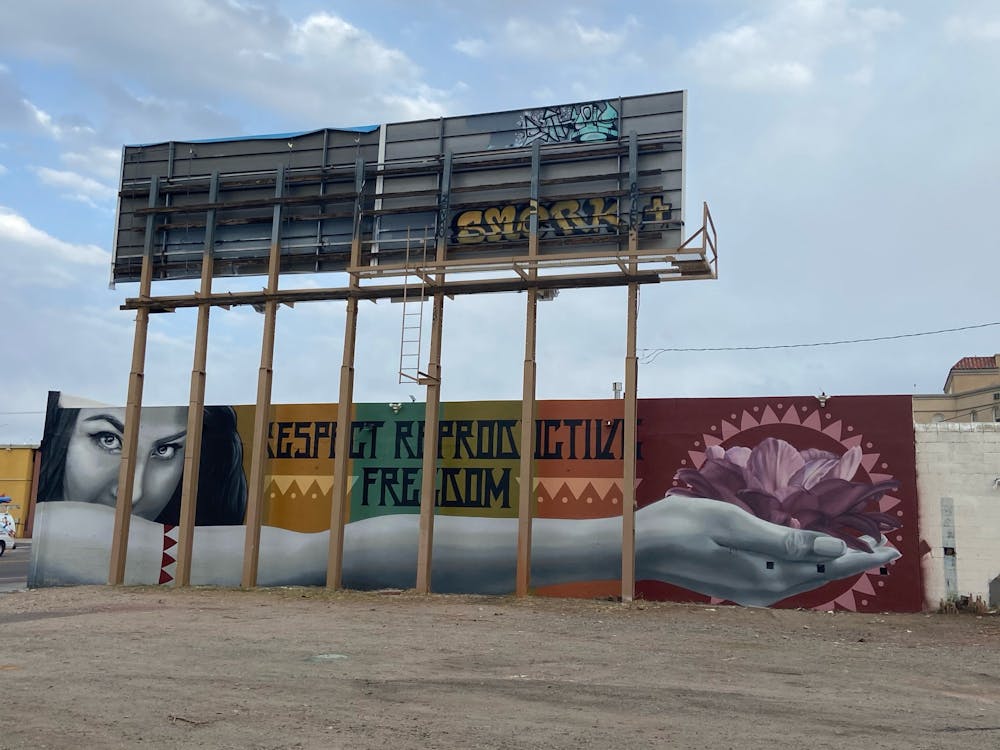The bill to repeal New Mexico's 1969 abortion ban (Senate Bill 10) was signed by Gov. Michelle Lujan Grisham on Friday, Feb. 26. The repeal adds an extra layer of protection for abortion health care in the state in case Roe v. Wade is overturned by the right-leaning Supreme Court.
"Anyone who seeks to violate bodily integrity, or to criminalize womanhood, is in the business of dehumanization. New Mexico is not in that business — not any more," Lujan Grisham said in a press release announcing the repeal.
Many supporters of the bill, including Lujan Grisham, believe that ensuring protections for abortion rights in New Mexico will save the lives of people seeking abortion care.
According to the CDC, 3,110 New Mexicans had abortions in 2018.
Republicans who opposed the bill were concerned about the absence of a "conscience clause," which would explicitly ensure that health care professionals have the right to refuse to perform an abortion.
This right is already protected by the Uniform Health Care Decisions Act.
"This bill will not force health care workers to provide abortion care, and claims otherwise are simply not true and set up a false dichotomy between patients and providers," said Ellie Rushforth, an attorney at the ACLU of New Mexico and an expert witness for SB 10.
Rushforth said it's inappropriate to make decisions for another person, since life experiences and pregnancies are all so unique.
"Unfortunately, rhetoric has overtaken reality in conversations about these complex decisions," Rushforth said.
Many who opposed the bill believed that the abortion ban was in the best interest of pregnant people throughout the state, and that abortion is murder and should be punished with criminal charges.
"This is a sad day for New Mexico. When Gov. Lujan Grisham penned her name to Senate Bill 10, she signed a death warrant," Steve Pearce, the chairman of the Republican Party of New Mexico, said in a press release after the bill's signing.
Rachael Lorenzo, who is Laguna, Mescalero Apache and a co-founder of Indigenous Women Rising, said the repeal of 1969 law was especially significant to them.
Get content from The Daily Lobo delivered to your inbox
Lorenzo shared with Daily Lobo that a doctor denied them abortion care in December 2013.
"I was denied abortion care, (the doctor) wouldn't do it and I was lying in my own blood ... My husband and my daughter were with me, and it was traumatic for all of us," Lorenzo said.
The experience left Lorenzo humiliated, depressed and afraid to get pregnant again.
In the aftermath, Lorenzo said they wanted to create a hub focused on reproductive health care from consent through pregnancy. Lorenzo said their goal was to provide support to Indigenous women and "make sure people can make the best decision for them and their family."
Indigenous Women Rising worked with a coalition called Respect NM Women to advocate for the repeal of the abortion ban.
This year, the group was led by Nicole Martin, Laguna, Diné and Zuni and a co-founder of Indigenous Women Rising, and Erica Davis-Crump, a reproductive rights activist and Black woman who helped the group to work toward liberation and reproductive justice.
"Their leadership made our coalition stronger," Lorenzo said.
Joan Lamunyon Sanford, the executive director of the New Mexico Religious Coalition for Reproductive Choice, said different religions have varying interpretations of whether a fetus is a living person, but it's common knowledge that pregnant people are living people.
"For us, it's (the pregnant person's) decision that she makes according to her faith and values and beliefs," Lamunyon Sanford said. "That is the decision that we center and support at all times."
Lamunyon Sanford said that as a faith-based organization, the coalition works to ensure that people are protected and comfortable.
"We make sure that they have food in their tummies, they've got a safe ride to appointments, they have access to prescriptions, and that's just a common theme across these (religious) traditions is caring for the stranger," Lamunyon Sanford said.
Even as the largely unenforceable 1969 law came off the books in New Mexico, reproductive health care continued to come under assault across the country. According to USA Today, more than 60 anti-abortion bills have been introduced in state legislatures so far this year.
Sarah Bodkin is a freelance reporter at the Daily Lobo. She can be contacted at news@dailylobo.com or on Twitter @sarahbodkin4






